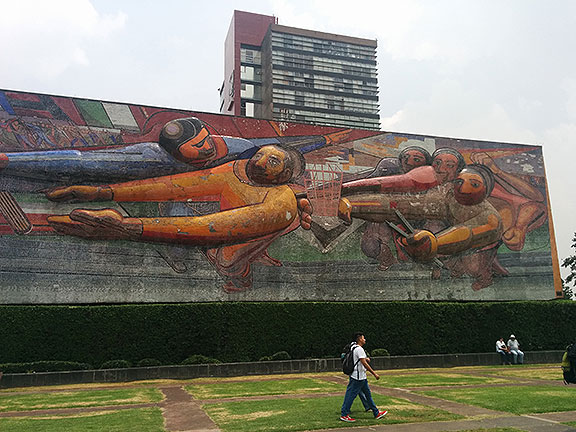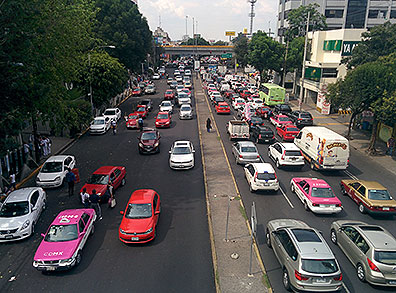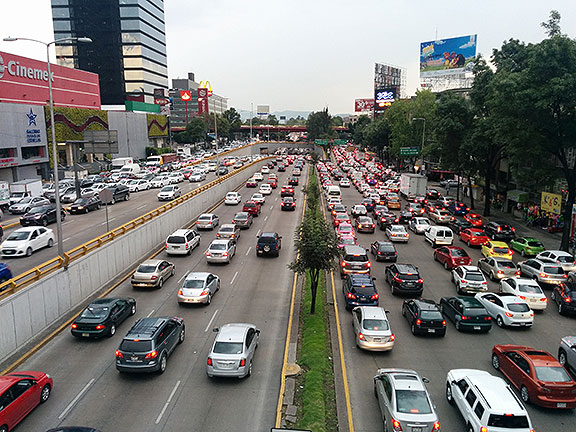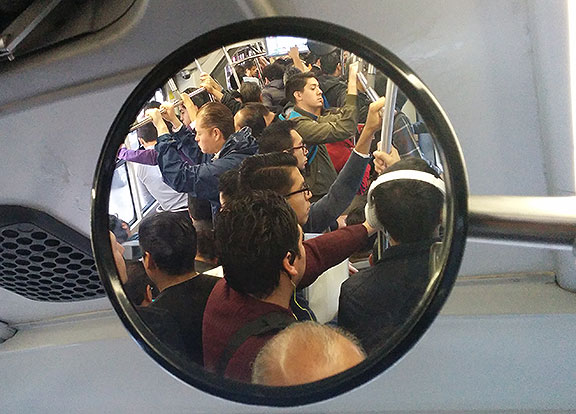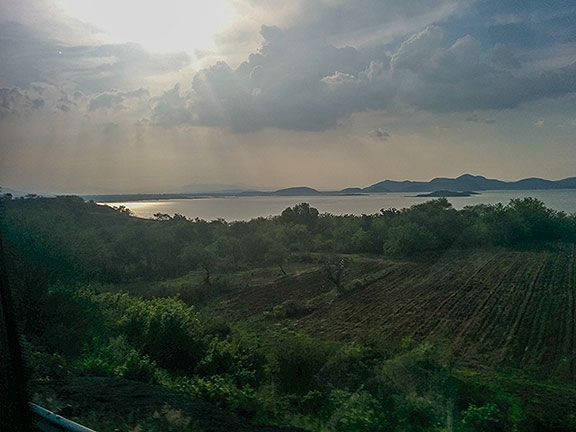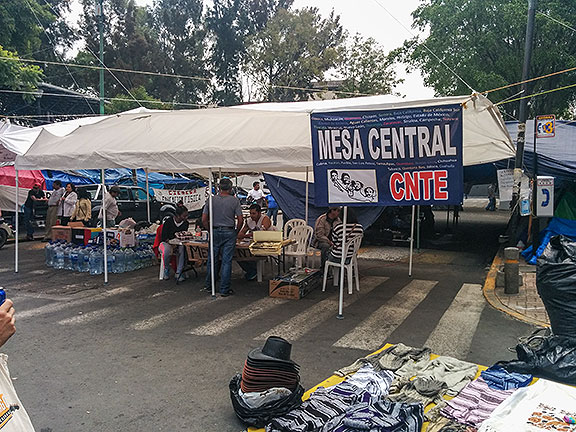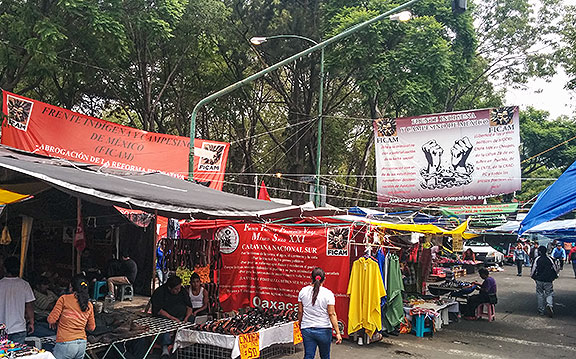I was very surprised when about two weeks ago an editor of the op/ed pages of the New York Times sent me an email asking if I’d write an editorial. The topic was supposed to be how the anti-trade politics of both Sanders and Trump were wrong, and that I should endeavor to write something akin to a “wobbly” (IWW) perspective about why internationalism was a good thing and that somehow the anti-trade politics were missing this… or something like that! I told them I couldn’t do that, but I had things to say about this political moment and they wouldn’t find it predictable. The editor, who once wrote a review of Processed World, encouraged me to proceed and I sent in a draft, which he edited and pitched to his editorial group. Unsurprisingly they turned it down. So I sent it over to The Guardian in case they might be interested, but they didn’t want it either. So here it is! With a variety of photos from the past two months in Mexico City. More to come shortly on Mexico and the teachers’ movement and my many wonderful experiences here.

Hilariously I got to stay in the Sheraton near the Angel de la Independencia for some time… constant amazing views of the stormy evening clouds and the crazy mix of quinceanaras and political protests at the monument.
Neoliberalism and Populism: Is That All There Is?
There are stark differences in personality and political style between Clinton and Trump, and most people who vote will choose one or the other. But millions of thoughtful people, probably a large majority, feel shut out, left to ponder how we might reorganize the way we live, from the bottom up.
For decades, there has been a mainstream neoliberal consensus, which holds that global trade is good and markets are more efficient than governments at meeting human needs. With the choice limited to centrist Democrats like Obama and the Clintons or ever more right-wing Republicans from Reagan to G.W. Bush, there has been no room for a critical alternative to the assumptions that government’s overriding priority is to facilitate the success of corporations and that the U.S. military should be used to police the world on their behalf.
Neoliberalism — a term widely used around the world, though less so in the United States — is an ideology Margaret Thatcher summed up in the early 1980s as “There is no alternative” to market forces. The reality that a tiny few have grown incomprehensibly wealthy while millions live at the edge of losing everything and millions more are in dire poverty (in the U.S. and the rest of the world) is dismissed as unimportant by the proponents of capitalist globalization. They continue to insist that the rigged game they’re playing will eventually benefit everyone, all evidence to the contrary notwithstanding.
A government dominated by millionaires, who fill most seats in the Senate and many in the House, has eroded belief in the system. This simmering rage against the corrupt and the rich found its voice during this election campaign. Both Sanders and Trump hammered at the trade deals that have been the cornerstone of global neoliberalism. Sanders managed to force Clinton to repudiate the TransPacific Partnership (TPP), though everyone knows that if she is elected, she will continue the Obama administration’s embrace of international trade pacts. Trump has upended the Republican establishment and their support for corporate freedom from government regulation nationally and internationally. No one can predict what he would actually do if he is elected, but he has put opposition to trade agreements like the TPP or NAFTA at the center of his campaign.
This nationalist economic rhetoric, which includes on the right the scapegoating of immigrant workers, has a long and sordid history. It is not surprising that a right-wing demagogue could find support by tapping into this century-old wellspring of animosity and resentment, used again and again to divide workers from one another. Even Cesar Chavez’s United Farmworkers Union, still revered by people on the left who support unions, scapegoated immigrant workers and engaged in their own border patrols to stop them in the early 1970s.
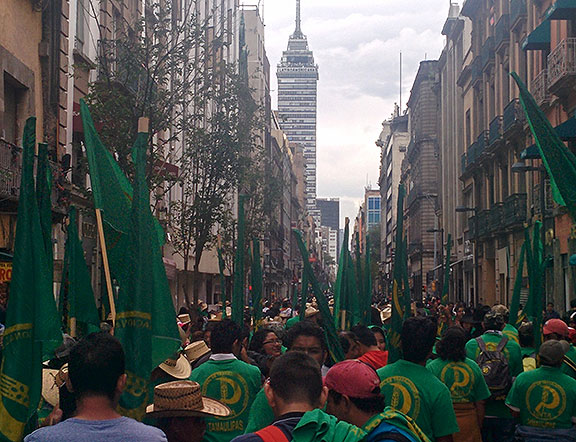
One hundred thousand farmworkers gathered in the center of Mexico City a week ago to demand resources and policy changes from the government.
Few remember now that, 17 years ago, it was the left-wing critique of trade deals that originally united the “Teamsters and turtles” in Seattle to halt the World Trade Organization talks in 1999. The common argument of organized labor then demanded “fair trade” rather than “free trade,” but many of us went to Seattle to reject that simplistic choice. The Committee for Full Enjoyment (not Full Employment) argued for “Life Not Trade!”
The anti-globalization movement with its cacophony of critical ideas and demands appeared many times in the years since, from the IMF/World Bank meetings in Washington DC in 2000, to the violent confrontations in Genoa, Italy in 2001, to a whole series of G-8 and other “summits” that faced major social resistance in Sweden, Quebec, Germany, Thailand, Miami and so on. The movement had deep roots in the Zapatista rebellion against NAFTA in Mexico in 1994, as well as uprisings in dozens of countries against IMF-imposed “structural adjustment programs” — the privatization of public works and public services, according to the neoliberal “Washington Consensus.”
Unlike mainstream unions (which usually avoided these protests) the anti- or alter-globalization movement didn’t reject internationalism; the World Social Forum emerged from it as a rejoinder to the elite’s annual gathering in Davos, Switzerland under the rubric of a World Economic Forum. The World Social Forum, which convened in Montreal, Canada last week, is a regular global meeting of movements focused on defining and constructing real alternatives to the way we live today. This process of knitting together global networks committed to a post-capitalist future has held its own summits in Brazil, India, Kenya, Mali, Venezuela, Pakistan, and Tunisia, but has fallen far short of everyone’s most cherished hopes.
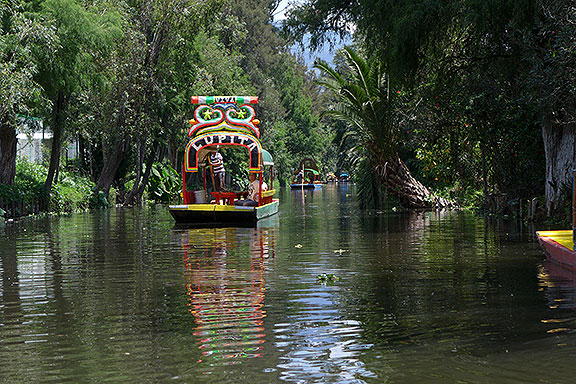
Spent a fun afternoon with my classmates and other friends visiting Xochilmilco, the famous waterways south of the city.

Classmates and friends and more!

We even hired a mariachi band for a tune!

It was a gorgeous afternoon.
Where can we look for change? Not in the form of mass organizations or political parties that contest directly for state power (though halting efforts towards this have emerged in Spain and Greece for example), but perhaps in the decentralized network of social movements that are difficult to recognize as such. One example would be the myriad groups trying to address the catastrophic ecological predicament we’ve put ourselves in. Jonathan Schell, writing in The Unconquerable World more than a decade ago, suggested that there were about 30 million such organizations worldwide.
Activists like these share some key characteristics. Many people are taking their time and technological know-how out of the market place and engaging in useful, practical projects to improve lives in the here and now. People want an alternative to just surviving on flat wages and with inflated housing costs. Many find it by working, usually for free, on projects that address the ecological crisis, social dislocation and the meaninglessness of most jobs.
The madness of perpetual growth as the raison d’etre of our economic life is never questioned. When we are urged to vote for Clinton or Trump, neither vote will challenge this reality.
The system is failing. Eventually, an alternative to the corrupt kleptocracy that runs it will emerge from the enormous creativity and compassion, daily cooperation and mutual aid that already undergirds much of our social life. The change is all around us as millions of people already participate in networks of mutual aid and solidarity, creatively reappropriating technology and skills to address their problems. These are the seeds of a new way of life.
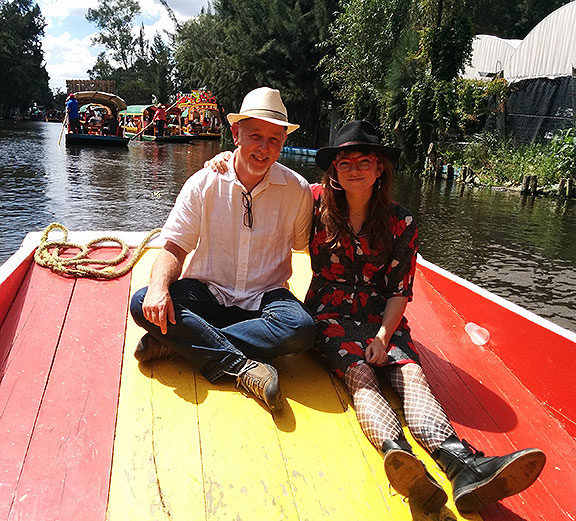
Even my daughter came along!

Returning to dock, what a sky!


